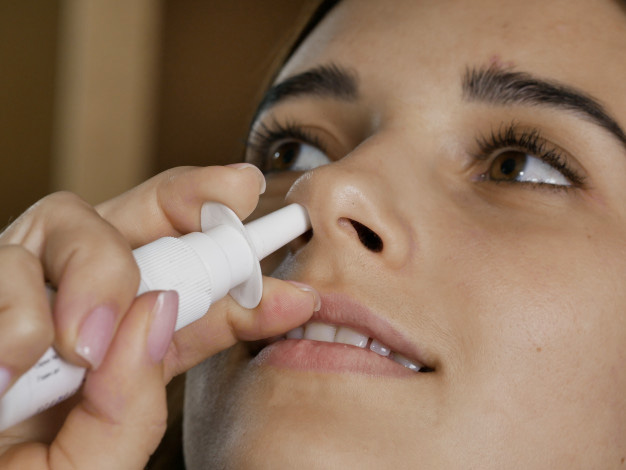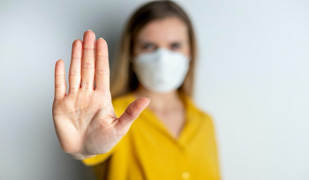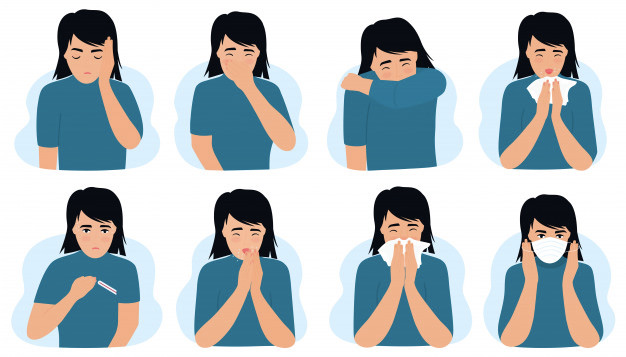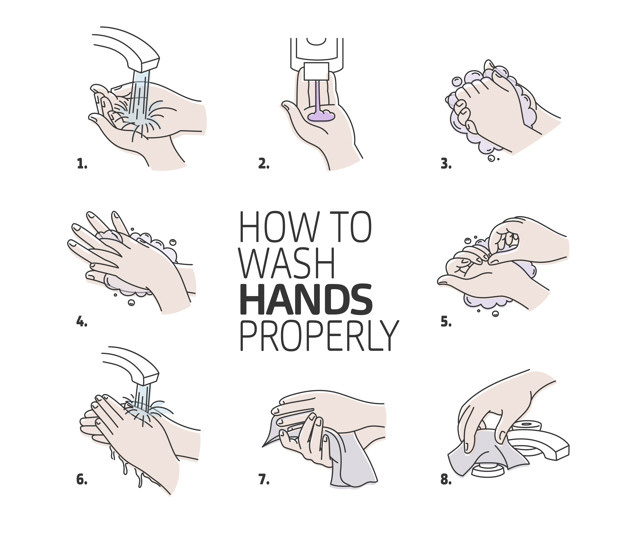- Lung Care Foundation
- 011 - 4225 2328
- lung@lcf.org.in
- Home
- About Us
- Our Initiatives
- Air Pollution
- Lung Basics
- Patient Support
- Get Involved
- Media
- Contact Us
Common Cold
- Home
What is Common Cold
Causes
Rhinovirus is the most common cause, accounting for 10-40% of colds. Other common cold viruses include coronavirus and respiratory syncytial virus (RSV).
How do we catch a cold?
You can catch a common cold easily from a person who is infected with this virus.
The common cold is spread by touching the surface which is contaminated with their germs like mobile phones, keyboard, etc or by inhaling the droplets after the infected person sneezes or coughs. Cold viruses can live for many hours on objects like toys, door handles, telephones, pens, tissues and more. If a healthy person picks up an object covered with cold germs, then touches their nose, mouth or eyes, they can catch the virus.

Risk Factors
- Age: Infants and young children are more likely to develop a common cold than adults as the immunity to fight against that virus has not been developed in their body.
- A cold may last for about one week, but some colds last longer, especially in children, the elderly and those in poor health.
- Weak immune system: Those individuals with poor immunity can develop common cold.
- Seasonal variation: The problem of a common cold is mostly seen during winters as most of them stay indoor facilitating spread of infection due to proximity.
Symptoms
- Runny nose
- Congestion
- Sneezing
- Scratchy throat
- Headache
- Cough
- Low-grade fever
- Weakened senses of smell and taste
- Fatigue
When should you consult a doctor?
It is important to consult the doctor if you notice any of the following:
- Usually cold lasts for 7-10 days but if it persists more than 10 days.
- If your child is less than 3 months and is showing the symptoms such as fever and is lethargic.
- If no cold but fever and throat pain persist.
Diagnosis
Treatment
There is no such cure for the common cold. One should not take antibiotics without consulting the doctors. Antibiotics are not useful for treating a cold, and should only be taken to treat bacterial complications that arise from it.
Symptom Relief
Over-the-counter medications
They provide temporary relief of symptoms and should be used as soon as you feel a cold coming on.
Acetaminophen, aspirin, ibuprofen, or any other non-steroidal anti-inflammatory drug (NSAID) may be used to relieve aches and pains.
REMEMBER to follow dosage instructions on all product labels and know what is in the medication you are taking. Be sure to discuss all medication choices with a healthcare provider.

Decongestant nasal spray and cough syrup
Congestion, cough, and nasal discharge may be treated with a decongestant, antihistamine, or a combination of the two.
The nasal spray should be used only by adults and children below 6 years are advised not to use the nasal spray.

Home Remedies
- Drink plenty of fluids which don’t keep you dehydrated.
- Rest is a must. If possible stay at your home which will give you the proper time for your body to recover.
- Gargling is the best with warm saline water.
Prevention
The most important measure to be taken is to avoid contact with the infected individuals.
Colds are extremely difficult to prevent entirely. The following suggestions may help:
Avoid touching your face
Keep fingers away from your nose and eyes to avoid infecting yourself with cold virus particles you may have been picked up.

You are not well
Cover your mouth with a mask or handkerchief while sneezing and coughing.
Do not inflict your cold on others. Also, stay away from most vulnerable people, including anyone who has asthma or another chronic lung disease, or at least try to limit close contact.

Questions for your Doctor
- What are the symptoms of cold and flu? Are they both different?
- What should I eat and drink?
- I used to feel lethargic due to the cold. What should I do?
- Will the use of antibiotics make my symptoms go away?
- Are any tests required for the common cold?
- Can I take natural medicine like herbs?
- If my child and I have a common cold then how should we manage?
Frequently Asked Questions (FAQs)
These illnesses are caused by different viruses. They have similar symptoms, so it can be hard to tell them apart. In general, cold symptoms are much milder than flu symptoms.
The symptoms of a cold include things like:
- Sore throat
- Stuffy nose
- Runny nose
- Cough
- Mild fever
The flu, on the other hand, often causes higher fever, chills, body aches, and fatigue.
It’s possible, if you’re sniffling but not achy or feverish.
Also, if your symptoms last longer than 2 weeks, and you also have red, itchy eyes, it might be allergies.
But it’s often hard to tell the difference because people with allergies and asthma are more likely to get colds. They may already have inflamed and irritated lungs, so they’re less able to fight off a virus.
You’re contagious for the first few days of your cold, so it’s best to stay home then. You need to be careful about coughing and sneezing around other people. Also, you will get better quicker if you get some rest.
It is important to be vaccinated every year. This is partly because influenza viruses constantly change, meaning different strains can circulate each year, and partly because immunity from an influenza vaccination decreases over time. Seasonal influenza vaccines are updated each year to provide the highest possible protection by matching the circulating viruses.
At home also, patients should spit in a box which is covered by a lid. Before disposing off the sputum, it should be boiled. It is very important not to get scared or to hide the disease whenever someone develops the symptoms of TB. It is necessary that the person concerned may get himself/ herself examined and take adequate period.
Kids are incredibly good at passing around a virus. They naturally breathe out more highly concentrated virus droplets than adults do.
As every parent knows, children are very active, always in each other’s faces. And of course, they may not wash their hands as often or as well as grown-ups.
Use your judgment to determine when you are feeling too sick to go to work or when your child is feeling too sick to go to school. It is important to stay home when you are most contagious. For colds, you are contagious the entire time you have symptoms, but you are most contagious right after you contract the viral infection, before you even have symptoms. For the flu, adults are most infectious from the day before symptoms start until about the fifth day of symptoms.
Cold weather itself does not cause colds, but people are more likely to stay indoors and spread cold germs to one another when it’s cold outside. There is emerging evidence that influenza spreads most efficiently at low temperatures and in low humidity, which may explain why cases of the flu increase so much in the winter.
All Rights Reserved By LCF.ORG.IN | Privacy Policy | Terms and Conditions
Powered by: www.chillitrends.com
- Home
- About Us
- Our Initiatives
- Air Pollution
- Lung Basics
- Patient Support
- Get Involved
- Media
- Contact Us


